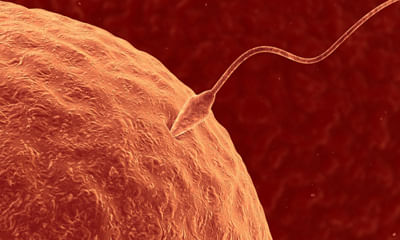Get the App
For Doctors
Login/Sign-up
About
Health Feed
Find Doctors
Health Packages
AllQ&AsTipsQuizzes
Mesotherapy Questions
Asked for male, 37 years old from Raipur
Share
Bookmark
Report
There can be various reasons for a negative pregnancy test after ivf, even when the procedure appears to have been done correctly. Some potential factors include:
embryo quality: the quality of the embryos transferred can significantly impact the success of ivf. Not all embryos have the same potential for successful implantation.
Endometrial receptivity: despite efforts to optimize endometrial thickness and quality, sometimes the uterus may not be receptive enough for implantation.
S...more
embryo quality: the quality of the embryos transferred can significantly impact the success of ivf. Not all embryos have the same potential for successful implantation.
Endometrial receptivity: despite efforts to optimize endometrial thickness and quality, sometimes the uterus may not be receptive enough for implantation.
S...more
162 people found this helpful
Health Query
Share
Bookmark
Report
Health Query
Share
Bookmark
Report
The factors contributing to noa can be related to issues in the testicles that hinder sperm production. In your case, the presence of a grade 2 varicocele on the left side and dilated ducts on both seminal vessels might be contributing to the azoospermia.
Key findings contributing to the diagnosis include:
semen analysis:
azoospermia with a semen volume of 2 ml, ph 7.8, greyish-white color, viscous viscosity, and 30 minutes liquefaction time.
Hormonal levels:
fsh (follicle-st...more
Key findings contributing to the diagnosis include:
semen analysis:
azoospermia with a semen volume of 2 ml, ph 7.8, greyish-white color, viscous viscosity, and 30 minutes liquefaction time.
Hormonal levels:
fsh (follicle-st...more
94 people found this helpful
Health Query
Share
Bookmark
Report
Health Query
Share
Bookmark
Report
Azoospermia, which means the absence of sperm in the semen, can be categorized into two types: obstructive and non-obstructive. Obstructive azoospermia occurs when there is a blockage in the reproductive tract that prevents sperm from being ejaculated, while non-obstructive azoospermia is associated with a lack of sperm production in the testicles. Here are potential options based on the type of azoospermia:
obstructive azoospermia:
surgical repair (microsurgical epididymal sperm aspirat...more
obstructive azoospermia:
surgical repair (microsurgical epididymal sperm aspirat...more
23 people found this helpful
Asked for female, 34 years old from Srinagar
Share
Bookmark
Report
Obstructive azoospermia:
if there's a blockage preventing the release of sperm, surgical procedures may be considered. Surgical interventions like microsurgical epididymal sperm aspiration (mesa) or testicular sperm aspiration (tesa) can retrieve sperm directly from the epididymis or testicles.
Non-obstructive azoospermia:
in cases where there is no blockage but a problem with sperm production, treatment options may include:
hormonal therapy: administering hormones such as fsh (f...more
if there's a blockage preventing the release of sperm, surgical procedures may be considered. Surgical interventions like microsurgical epididymal sperm aspiration (mesa) or testicular sperm aspiration (tesa) can retrieve sperm directly from the epididymis or testicles.
Non-obstructive azoospermia:
in cases where there is no blockage but a problem with sperm production, treatment options may include:
hormonal therapy: administering hormones such as fsh (f...more
34 people found this helpful
Asked for male, 34 years old from Trichy
Share
Bookmark
Report
Hello-
the treatment options available for y chromosome infertility vary depending on the type and severity of the deletion. In some cases, a man may still be able to father children using assisted reproductive technologies, such as in vitro fertilization (ivf) or intracytoplasmic sperm injection (icsi).
the treatment options available for y chromosome infertility vary depending on the type and severity of the deletion. In some cases, a man may still be able to father children using assisted reproductive technologies, such as in vitro fertilization (ivf) or intracytoplasmic sperm injection (icsi).
56 people found this helpful
Health Query
Share
Bookmark
Report
Impaired ejaculation:
severe phimosis may lead to difficulty with ejaculation. If the foreskin is tight, it may impede the normal release of semen during ejaculation, affecting the delivery of sperm into the female reproductive tract.
Infection risk:
phimosis can sometimes lead to an increased risk of infections, such as balanitis. Infections in the genital area can potentially impact sperm health or the patency of the reproductive tract.
If you are actively trying to conceive an...more
severe phimosis may lead to difficulty with ejaculation. If the foreskin is tight, it may impede the normal release of semen during ejaculation, affecting the delivery of sperm into the female reproductive tract.
Infection risk:
phimosis can sometimes lead to an increased risk of infections, such as balanitis. Infections in the genital area can potentially impact sperm health or the patency of the reproductive tract.
If you are actively trying to conceive an...more
22 people found this helpful
Asked for male, 35 years old from new delhi
Share
Bookmark
Report
Consult with a specialist: Consider seeing a urologist or an andrologist who specializes in male reproductive health and sexual dysfunction. They can conduct a thorough evaluation, including a detailed medical history, physical examination, and additional tests if necessary, to identify any underlying causes contributing to your condition.
Consider psychological factors: Psychological factors such as stress, anxiety, depression, and relationship issues can contribute to ED, PME, and a d...more
Consider psychological factors: Psychological factors such as stress, anxiety, depression, and relationship issues can contribute to ED, PME, and a d...more
113 people found this helpful
Health Query
Share
Bookmark
Report
Consult with a specialist: it's important to consult with a reproductive endocrinologist or urologist who specializes in male fertility to further investigate the cause of your azoospermia. They can conduct a thorough evaluation, including additional tests and examinations, to determine the specific underlying factors contributing to your condition.
22 people found this helpful
Book appointment with top doctors for Mesotherapy treatment
View fees, clinic timings and reviews
Ask a free question
Get FREE multiple opinions from Doctors
posted anonymously














